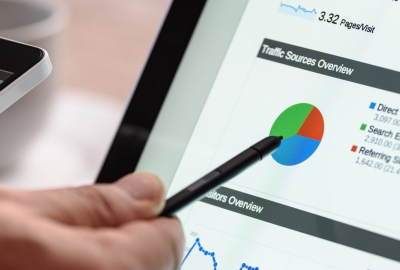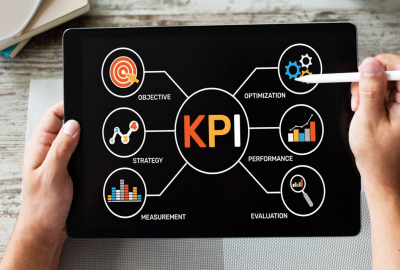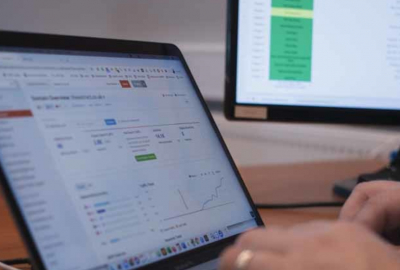Coronavirus’ impact on businesses is a lot of things- future arriving faster, a new normal, remote connections, virtual networking.
Forrester points out 5 trends emerging from the pandemic’s impact on businesses:
- Safety and convenience have become unique selling points (USPs) for businesses.
- Omnichannel retail and marketing are inevitable.
- Businesses and governments will partner to invest in projects that were considered “too into future” to navigate the new normal.
- Reliance on technology has increased to design sustainable business and revenue models.
- Business’ ability to stay resilient against the pandemic’s onslaught has become a competitive advantage.
With the pandemic still present, it’s difficult to predict how public policies and consumer behaviour shall change in future. However, we can confidently admit what has happened so far. In this blog post, we talk about how coronavirus has impacted businesses.
Let’s dive in.
Coronavirus’ Business Impact in Ireland
Coronavirus in Ireland has made businesses stare into the dark reality of insufficient capital, pausing their businesses, etc.
According to Enterprise Ireland, 60% of businesses have been negatively impacted. Most businesses suffer setbacks on sales exports, financial planning, staffing, and supply chain.
Many businesses are undergoing a remote work revolution. Particularly, sectors such as professional, financial, and support services that contribute to 42% of Ireland’s GDP have enabled employees to work from home.
The government has announced a slew of schemes such as COVID-19 Working Capital Scheme, COVID-19 Business Loans, Employment Wage Subsidy Scheme, etc. to sustain businesses.
Innovation In E-commerce
One of the distinct impacts of coronavirus on businesses is that it is forcing innovation in e-commerce.
Nowadays, consumers are focussing on what’s cheap, what’s clean, what’s contactless, what’s local, and what’s environment friendly.
Also, since the advent of the pandemic, there has been a 15% increase in mobile shopping.
Setting up an e-commerce store for your business satisfies these consumer preferences.
As more digital natives, who prefer online shopping enter the workforce this year, online payments shall surge.
Banking on these circumstances, most businesses offer an omnichannel retail experience. For example, they develop e-commerce stores which sync on the cloud and communicate with temporarily set up flash stores. This helps in dynamically dispatching orders.
Invest In Pay Per Click ads
Another trend is a decreasing cost per click (CPC) in PPC platforms. In online advertising, ads are shown based on who wins ad auctions.
Earlier, competition from smaller businesses upped stakes for bigger companies to bid more for the latter to win an ad auction.
However, (sadly) many small businesses are cutting down on advertising, in order to save during the pandemic. Businesses impacted by social distancing norms are hesitating to scale. CMO’s survey reveals that 57% of companies have reportedly slashed their marketing budgets.
Companies fearing to scale in this uncertainty has set off a chain reaction that has lowered CPC. In parallel, the number of internet searches has surged by 50-70% and people spend 32% more time on social media.
Taking advantage of lowering rates of ad inventory, investing in PPC appears profitable.
Consumer Optimism Is Back In Business
In B2C markets where COVID cases are stabilizing such as the USA, people are hoping to return to their normal (buying) routine.
Even amid such uncertainties, America’s B2C e-commerce marketplace is set to grow to 1,340.8 billion by 2030. The growth will be pioneered by increased mobile adoption, online shopping, etc.
In early 2020, IRI reported that hand sanitisers and cleaning items increased in triple-digit rates. A few months later, furniture for workstations, board games, and digital content began to soar in demand.
Hence, people’s shopping behaviour first declined in expenditure. Later, however, it changed in spending and purchase behaviour.
In the new normal, buyers expect brands to be more value focussed. They expect physical barriers that lower the risk of virus transmission when in physical stores. They want products that can keep them home, sane, and safe.
Another trend in B2C is businesses wooing customers by adopting trial tactics such as try before you buy, no questions asked return policies, etc.
The ensuing disruption in people’s social and economical life encourages businesses to focus on safety and convenience. Additionally, brand loyalty has taken a back seat, with customers open to trying new shopping methods and brands.
People are looking to develop new relationships with businesses. Besides focussing on product quality, consumers are focussing on the ethical values of a business as well.
Guess it’s time to think about repositioning your brand to acquire eco-friendly brand attributes for your product. You can begin with consulting a good marketing agency to move your dial forward.
B2B buying is playing catch up with the new normal
Covid’s impact on B2B business has increased e-commerce sales by over 50% in markets such as the UK.
Businesses are now in the process of establishing their sales pipelines that are entirely online.
But this is where the troubles are brewing for B2B companies.
Unlike established B2C platforms such as Amazon who have large data on user behaviour and sales, B2B companies lack these insights. They find trouble in managing their inventories, predicting demand often ending up on an out of stock status.
Also, several parts of B2B sales involves a salesperson travelling across borders to move deals and negotiate prices. This process is disrupted as well, with commutes becoming a taboo.
Besides, lockdowns have bitten supply chains hard that businesses are moving to new suppliers who can help them manage online buying processes. Many businesses have deserted their pre-pandemic suppliers as they couldn’t meet the demand.
Ease of doing business in the pandemic
Studies reveal that retail, arts and entertainment, personal services, food services, and hospitality businesses were most affected during the pandemic.
In contrast, finance, professional services, real estate-related businesses, and other niches that required little to no personal contact faced fewer hassles.
In such harsh times, small businesses are making use of government grants such as PM CARES in India, CARES in the USA etc. Coronavirus in Ireland, pushed the state to promote an online retail scheme to support businesses amid dwindling wallets.
However, despite such benevolent measures from the state, businesses find it difficult to access them. Particularly, administrative complexity, eligibility, bureaucratic hassles, difficulties in establishing eligibility are some cited reasons.
Repositioning For The Pandemic
Let’s consider one of innovation’s favourite children, Airbnb.
It is easy to imagine Airbnb’s business model toppled by the pandemic.
However, Airbnb had different ideas.
It went to its roots of being the perfect host and delivering great hosting experiences online.
Currently, Airbnb is setting up a platform for hosts to deliver activities they used to perform offline. Meaning, people who used to offer songwriting, pot making and other region-centric activities could do the same online to a larger customer base.
For the moment, Airbnb has positioned itself as an experience provider. It believes that these online experiences could boost awareness of hyperlocal destinations. Subsequently, the company expects that, once social distancing norms are lifted, people would visit these activity providers.
It also positions itself as a provider of learning for various cultural activities, on a remote basis.
Conclusion
Like the industrial revolution, internet and e-commerce, the new normal does not slash and burn entire industries. However, it weeds out business models that fail to accommodate
- In-store social distancing
- Customer convenience
- Remote work
- Technology that enhances the human experience
- Shorter value chains
Businesses have to reposition themselves to be more value-based, credible and safe.
The consumer of the new normal is expecting brands value both them and the planet. Buyers expect companies to project values and ethics in their branding as well.
How ORH marketing can help your business?
Need help with scaling your e-commerce or branding?
ORH Marketing puts a sharp emphasis on results. We are a data-driven marketing agency who have produced results even amid cut-throat competitive markets. We have scaled companies’ growth despite the pandemic.
Our clients have been positioned for both vibrant branding, and success.
Coronavirus in Ireland has prompted the government to release grants for businesses. We can help you avail of these government grants.
Contact us if you need any marketing-related help to pull you through this pandemic.






